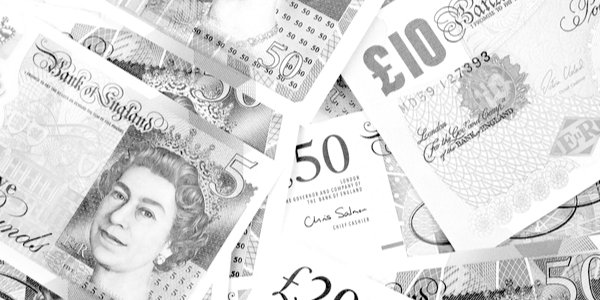THE world’s wealthiest person, French luxury goods tycoon Bernard Arnault, has seen his fortune rise to $233billion, according to the latest Forbes rich list. That’s around £184billion, putting him comfortably ahead of Tesla’s Elon Musk ($195billion / £154billion) and Amazon’s Jeff Bezos ($194billion / £153billion).
The rest of us can only gasp at such staggering sums – and maybe start penning a few begging letters. What I find even more mind-boggling is the news that the world’s first dollar trillionaire may be with us by the end of the decade. A trillionaire! It means the lucky so-and-so will be worth a thousand billion dollars – almost £800billion, or £800,000,000,000.
Whether it will be Arnault, Musk, Bezos, or a new moneybags on the block, we’ll have to wait and see. But such a whopping wedge almost defies the imagination – it’s bigger than the gross domestic product of many developed countries.
Perhaps we shouldn’t be surprised, because the plain fact is that the rich are getting richer. Twenty-four years ago, Forbes estimated that dollar billionaires numbered 470 globally. Today, there are a record 2,781. And the world’s wealthiest are better-off than ever, collectively worth 14.2trillion dollars – up by two trillion on last year. ‘Even during times of financial uncertainty for many, the super-rich continue to thrive,’ says Forbes.
Unlike most of us, the stupendously wealthy came out of the covid imbroglio with more money in their pockets. The pandemic and lockdowns led to ‘one of the greatest wealth transfers in history’, money guru Jim Cramer, of the US business news television channel CNBC, wrote in June 2020. The reason, he said, was that stock markets rose as big business rebounded from state-ordered stoppage of non-essential activity, while small businesses ‘dropped like flies’.
It all means that there’s a heck of a lot of dosh sloshing around in the upper echelons of the financial elite. And, like many of us, I wouldn’t mind a slice of it. Yes, I know the love of money is the root of all evil. And the Bible tells us: ‘What shall it profit a man if he gains the whole world, and suffers the loss of his soul?’
Despite such dire warnings, I’ve always fancied joining the ranks of the rich. Maybe not as a Forbes Lister, but perhaps a lottery winner. The biggest jackpot so far on Euromillions has been £206million, and I could just about scrape by on that.
However, to the super-duper wealthy, such sums are small change. And the possible arrival of the first trillionaire gives even a wannabe Croesus like me pause for thought. ‘Riches beyond the dreams of avarice’ doesn’t begin to describe the amounts we’re talking about.
It’s then that the thought strikes me, and I suspect most sensible people: Why the hell would anyone want so much money? What would you do with it? Well, after they’ve splurged on private islands, vast estates, multiple homes, flash cars, superyachts, private jets etc, some of the super-wealthy give a bit of it away. By channelling their spare billions into so-called philanthropic causes, they can buy a commodity you won’t find in the shops . . . political, social and economic influence and power.
Some of the earliest multi-millionaires, such as the Scottish-American steel magnate Andrew Carnegie (1835-1919), divested themselves of their fortunes with, for the most part, good intentions. Carnegie is best remembered for building 2,509 libraries throughout the English-speaking world.
But TCW readers will well know how the so-called philanthropy of some of today’s tycoons such as Bill Gates and George Soros has a very different purpose. Writer Karen Harradine has told on these pages how they are using their wealth to usher in a ‘New Dark Age’ via social engineering, undermining national democracies and economies in pursuit of their dream of a world controlled by supranational organisations – and by themselves.
So is there any solution to the problem of the ultra-wealthy? Or, provided they don’t use their riches for sinister ends, is it even a problem? Ingrid Robeyns, a professor of philosophy and economics at the University of Utrecht in the Netherlands, argues in her book Limitarianism: The Case Against Extreme Wealth that no one should have personal wealth of more than ten million euros (about £8.5million).
Good luck with that, because I’d say such a curb is unlikely to happen. It’s almost instinctive in our society to want to accumulate wealth, although most of us would be content with enough just to maintain a comfortable standard of living and leave some to our children. For all that I dream of a big lottery win, that would be my intention as well.
In retrospect, I’d be wary of amassing a vast fortune, because it seems glaringly obvious that money doesn’t buy you happiness. I can see how the burden of a burgeoning bank balance might make you reclusive, suspicious, aloof, morose, even paranoid. However, with the billions continuing to roll into their coffers, we’re unlikely soon to see the decline of the wondrously wealthy. As the title of a 1932 comedy-drama movie starring Ruth Chatterton and Bette Davis reminds us: The Rich are Always With Us.
The post Who wants to be a trillionaire? appeared first on The Conservative Woman.











